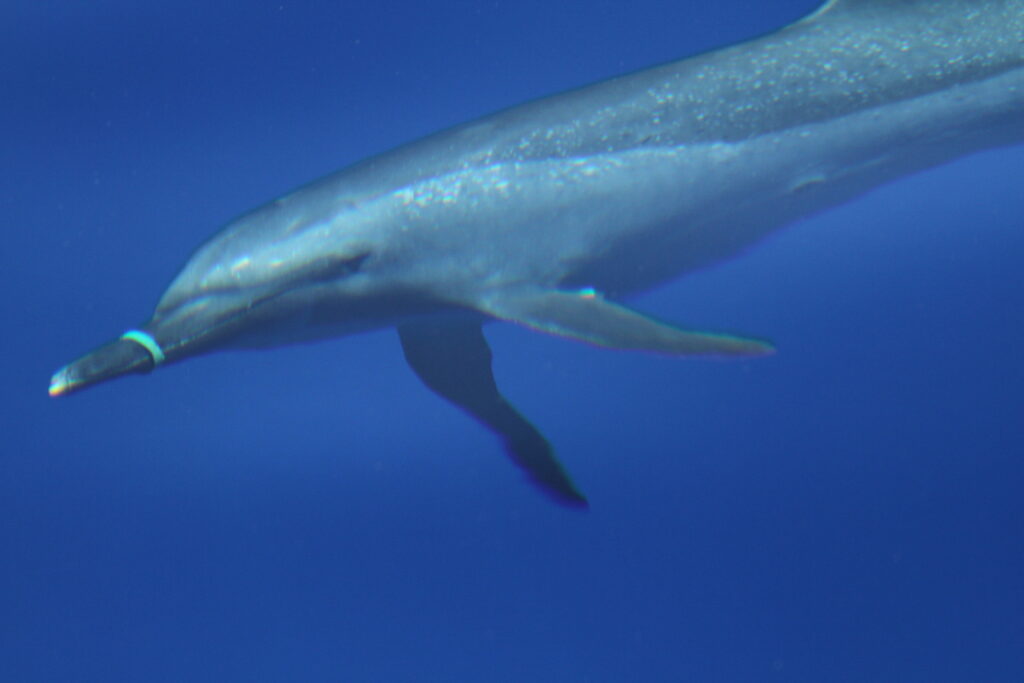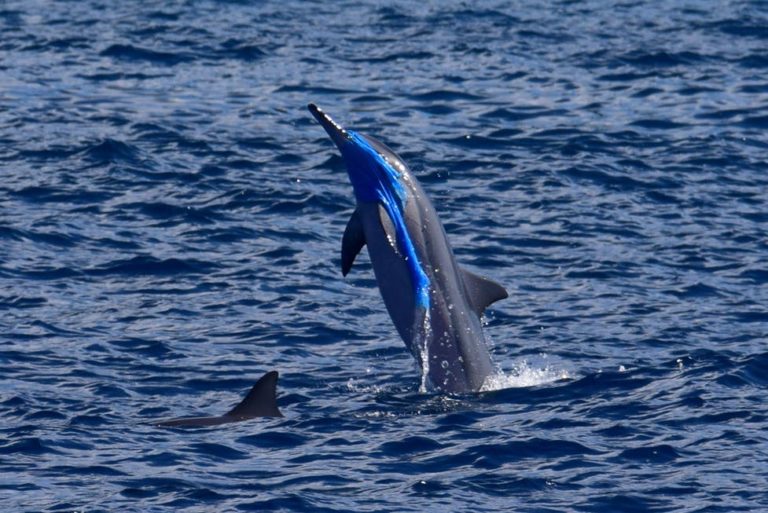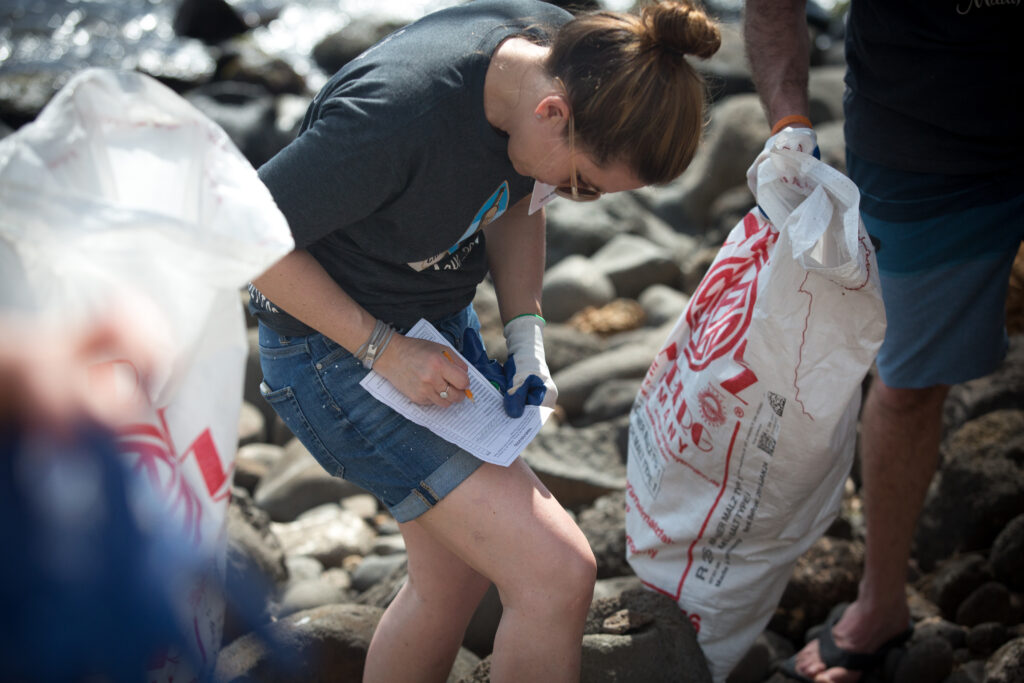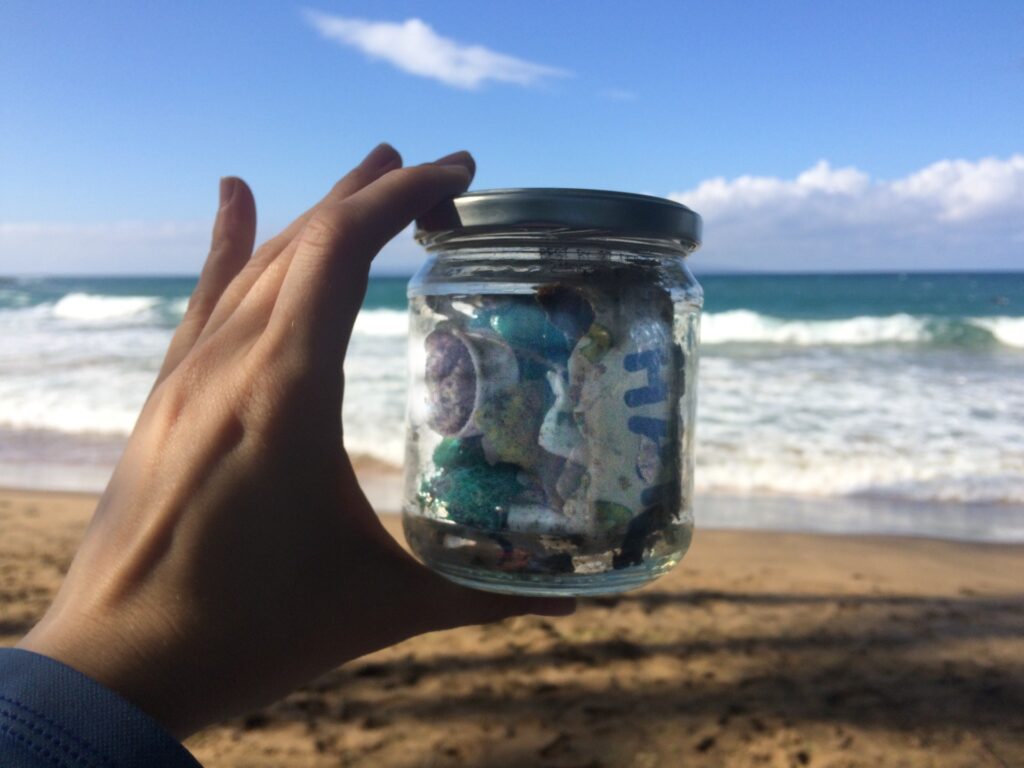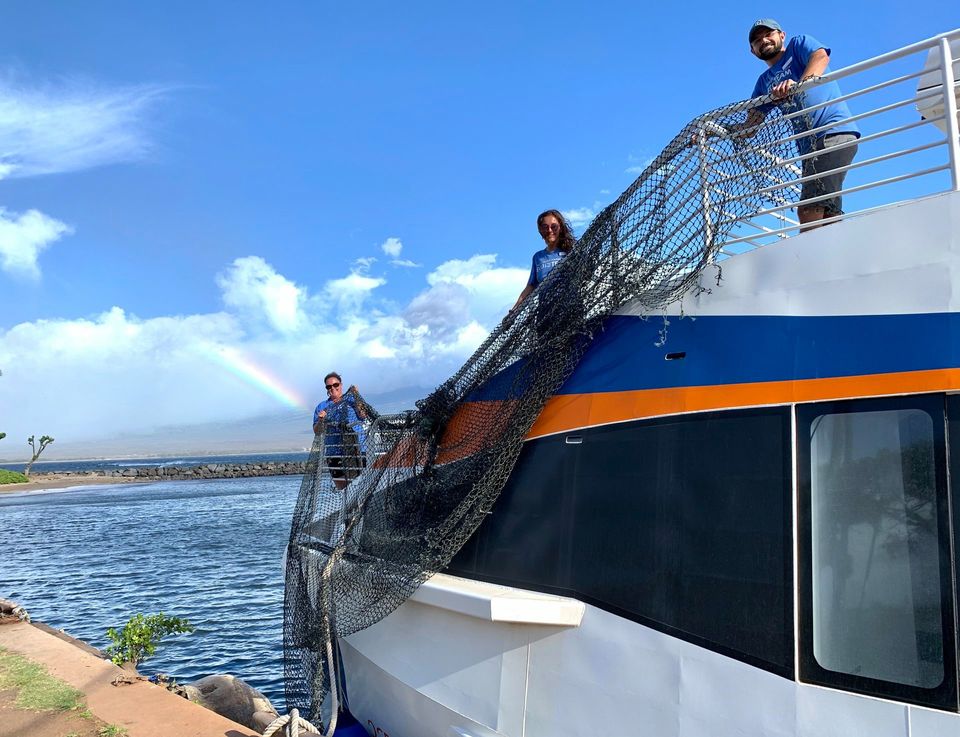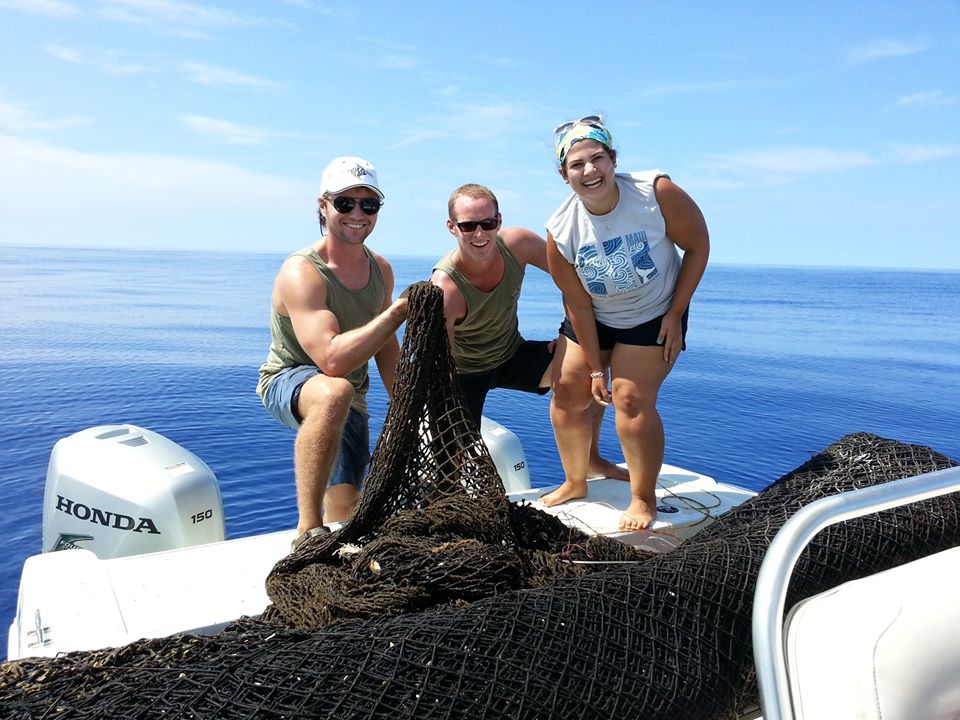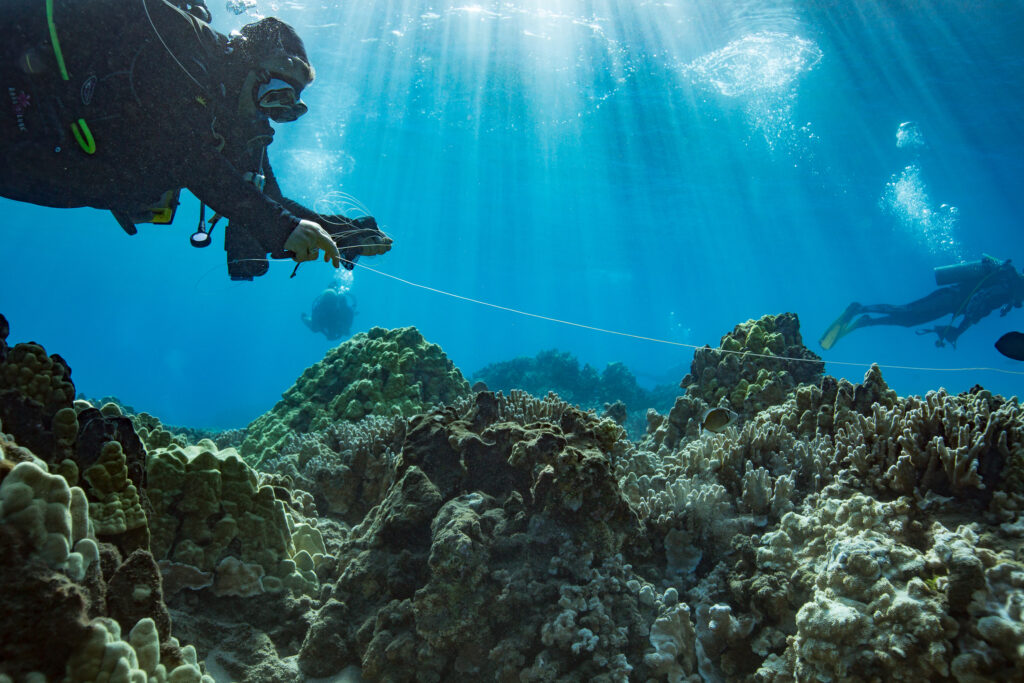Author: Conservation Coordinator Shelby Serra
From the smallest plastic straw to a 1000lb discarded fishing net, marine debris — trash that finds its way to the marine environment — is an issue that spans the globe. Whether a stream, river, lake, sea or ocean, all marine environments are subject to the damaging impacts of marine debris.
Researchers are building mounting evidence that marine debris, specifically persistent plastics, pose a serious risk not only to human health, but to wildlife at all levels. Pacific Whale Foundation’s own research has shown that there is significant overlap between marine debris and cetacean habitat, as well as a relentless plastic pollution problem along the shorelines of Maui Nui. PWF research shows that over 80% of the debris we remove from Maui’s shorelines is plastic, with similar trends observed through the Hawaiian archipelago
In this first 3-part installment of our conservation policy blog series, which will cover a range of topics, we will explore the various policies that address marine debris, from the local level to recent national legislation. Where have we been successful and what barriers have we faced in our efforts to protect our oceans from the dangers of marine debris? Most importantly, we will address actions taken by Pacific Whale Foundation (PWF) and discuss how each individual can be part of the solution.
Before we can understand how to fight the pervasive blight of marine debris, we must understand how the debris becomes “marine” in the first place. Aside from those plastics you attempt, in good faith, to recycle, how does all the other debris make it to the marine environment? If you are reading this blog, you have likely seen images of straws in turtle’s noses, rubber bands wrapped around a dolphin’s rostrum and have surely heard stories of bottle caps discovered in the stomachs of deceased birds. Unfortunately, these are the harsh realities of our waste ending up in the ocean. These lightweight, persistent plastics are blown from trucks, landfills, outdoor trash receptacles or simply discarded improperly and find their way to nearby bodies of water.
Once plastic debris reaches the marine environment, wind, waves and water break it up into smaller and smaller pieces. Over time, this negatively impacts the entire food chain, as even some of the smallest organisms at the base of the food chain are threatened with microscopic plastic pieces.
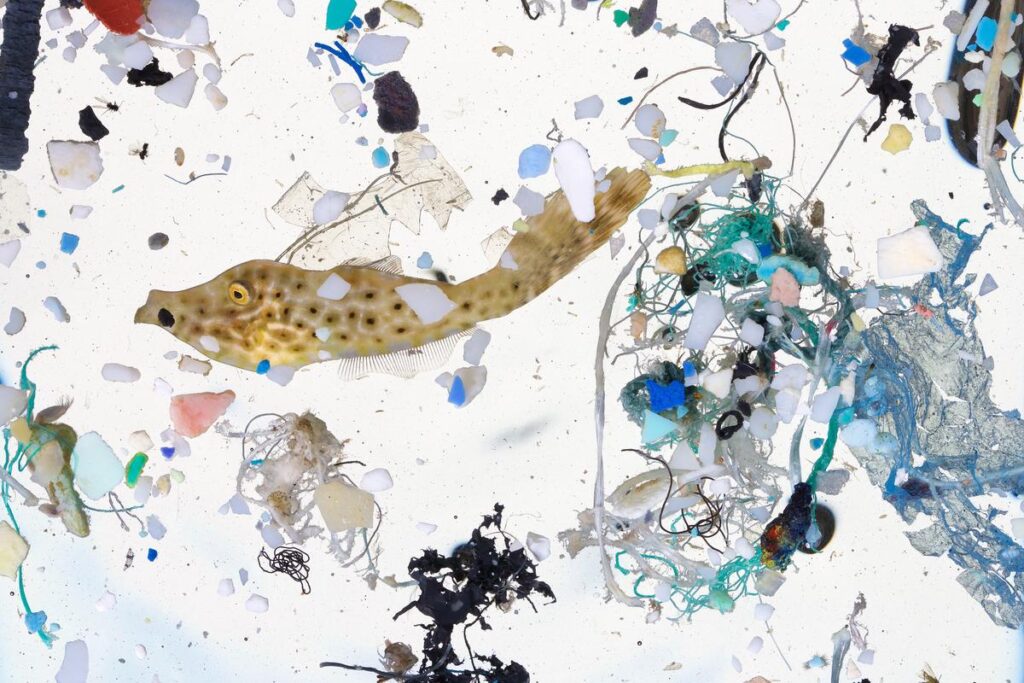
Photograph from HPR article, COURTESY OF DAVID LIITTSCHWAGER
While the problems caused by marine debris seem crystal clear, solutions to combat it remain a bit murky. Most of the waste in the U.S., particularly “recyclable” plastic waste, is exported to other places. According to the U.S. Census Bureau, in 2018 the United States exported 78% of plastic waste to countries known to practice waste mismanagement. This essentially resulted after China closed its doors on recyclable plastic imports and the U.S. was seemingly unable or unwilling to implement efficient domestic recycling options, which means those countries — already major sources of marine plastic pollution — are increasingly overwhelmed with plastic waste. Regardless of what you think happens to your recyclables after throwing them in an appropriate bin, you should know that, statistically speaking, those “recyclables” are probably sitting in a landfill or clogging up the streets, waterways and landfills of developing countries.
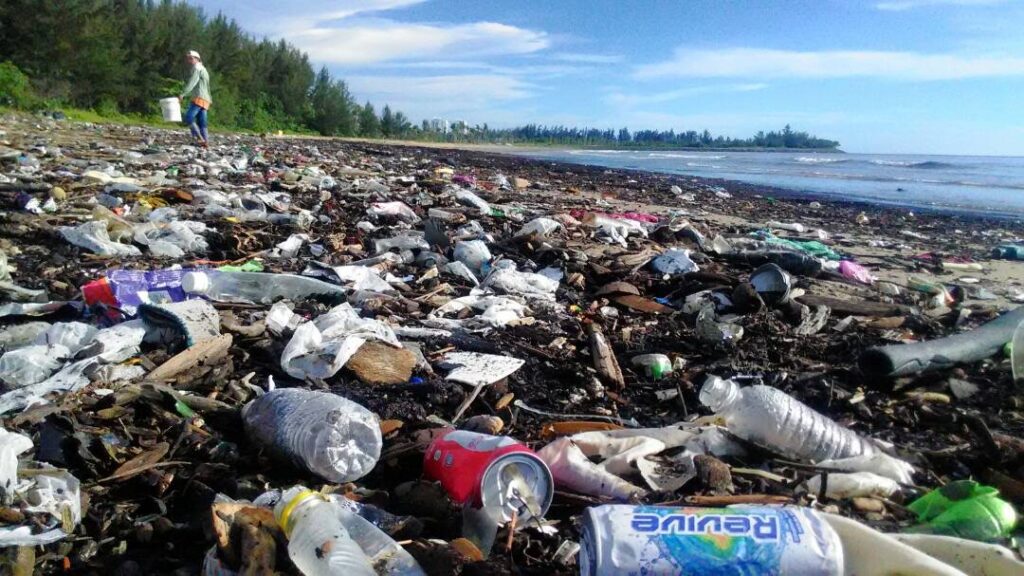
As “whale” is our middle name, Pacific Whale Foundation has a vested interest in combating this major stressor on whales and dolphins. Since many cetaceans spend time foraging close to the surface or regularly return to the surface to breath, the lightweight, buoyant nature of plastics in the marine environment poses a serious risk to their health. Whether these animals “play” with these items and get incidentally entangled or debris is mistaken for food and ingested, there are few scenarios involving cetaceans and marine debris that yield safe or healthy results.
PWF has been on the frontlines of advocacy work on Maui, submitting testimonials in support of any bill introduced that addresses harmful plastics starting with the prohibition of smoking on Maui County beaches in 2014 to the most recent ban on single-use plastic disposable food ware, set to go into effect in January 2022. Our testimonies cite in-house research proving that these plastics are detrimental to the environment, which in turn supports our mitigation recommendations. In addition to our own testimonials, we work to inspire our audience of a quarter-million to become involved with similar legislation relevant to their regions.
We also value education as an integral part of the solution and use it to spread the word about the detriments of single-use plastics and individual actions that contribute to the solution. We coordinate cleanup events throughout the year, launched a RETHINK campaign that helps consumers choose more sustainable options to single-use plastics, and conduct a Plastic Pollution Solutions program where we visit local schools and teach them about this issue and what they can do to help. Another example of the many ways we use education to make a difference is our very own Coastal Marine Debris Monitoring Program, which encourages people to collect and record debris data to help us better understand prevalence and source. PWF is fortunate to have amassed an army of activists who care deeply for our marine environment and we aim to inspire them to use their voice and actions to help combat the threats to the survival of the world’s whales and dolphins”




